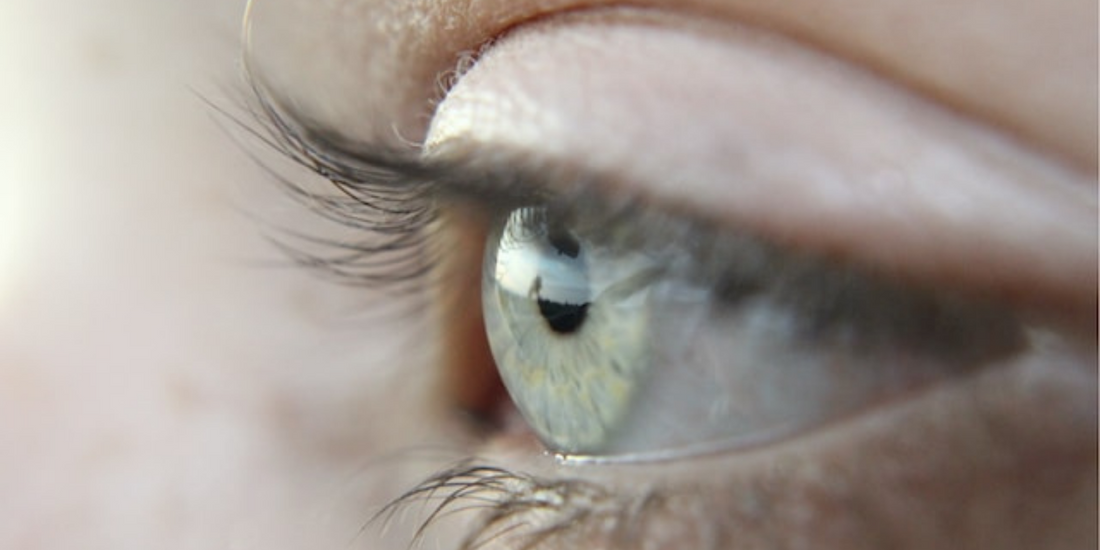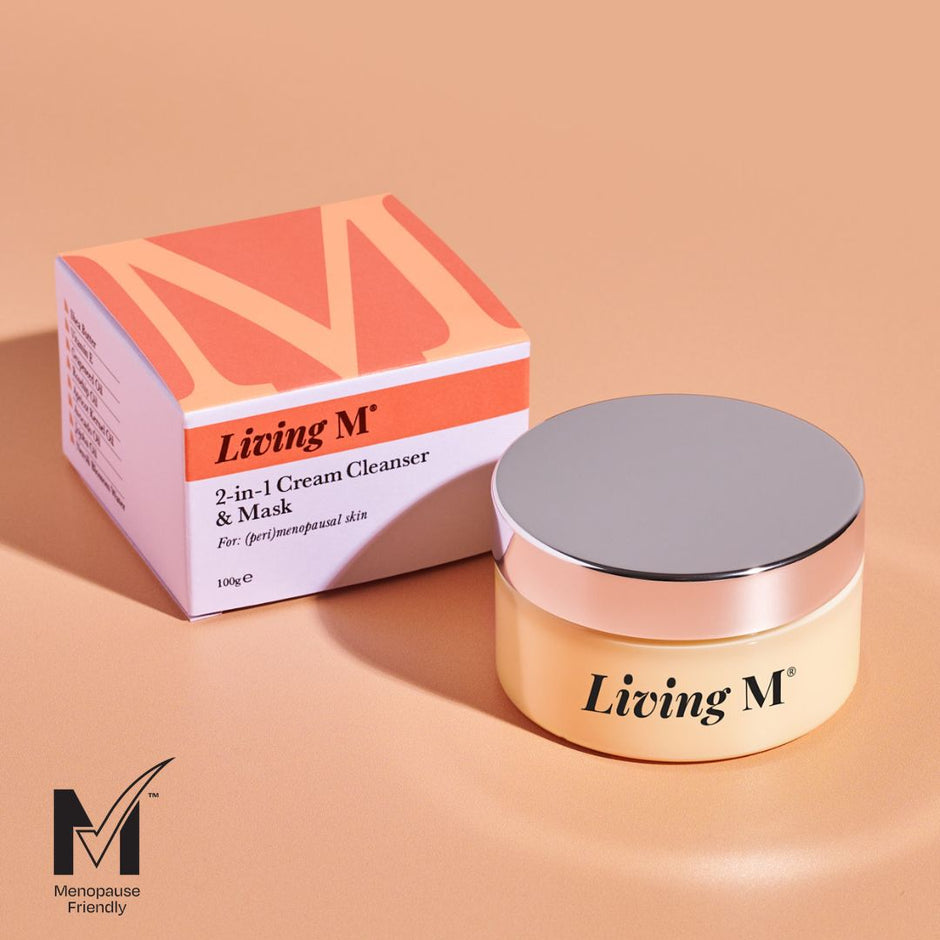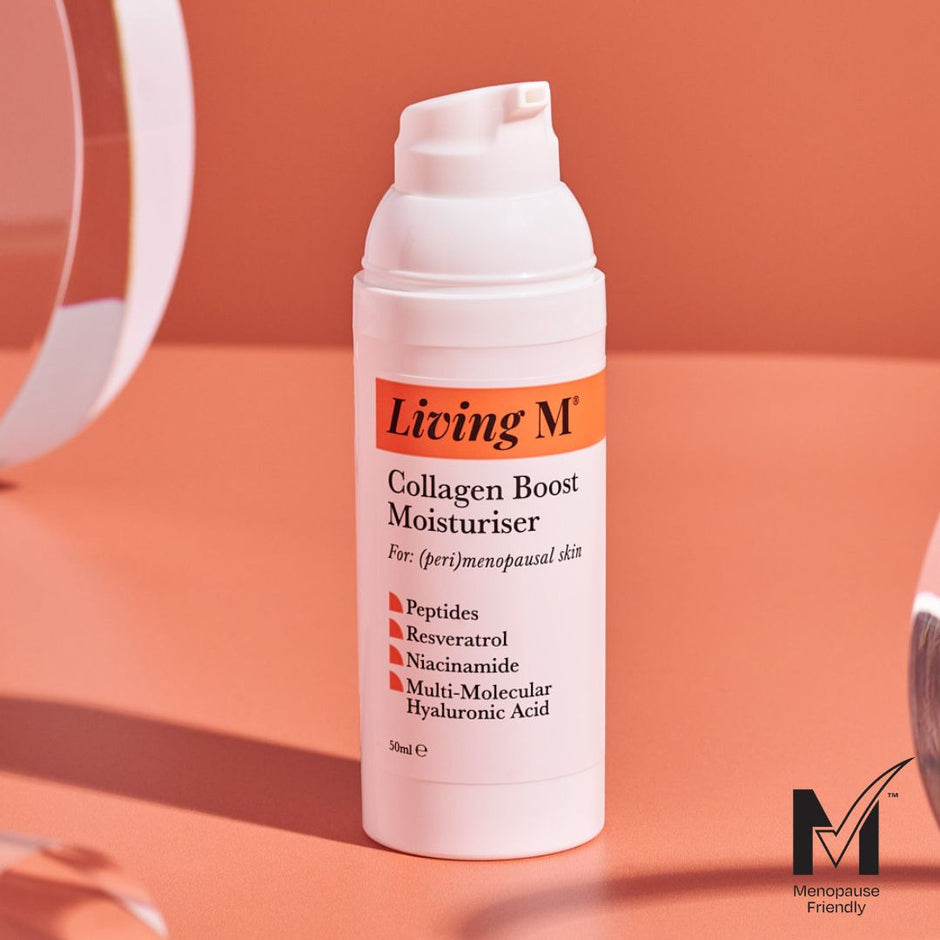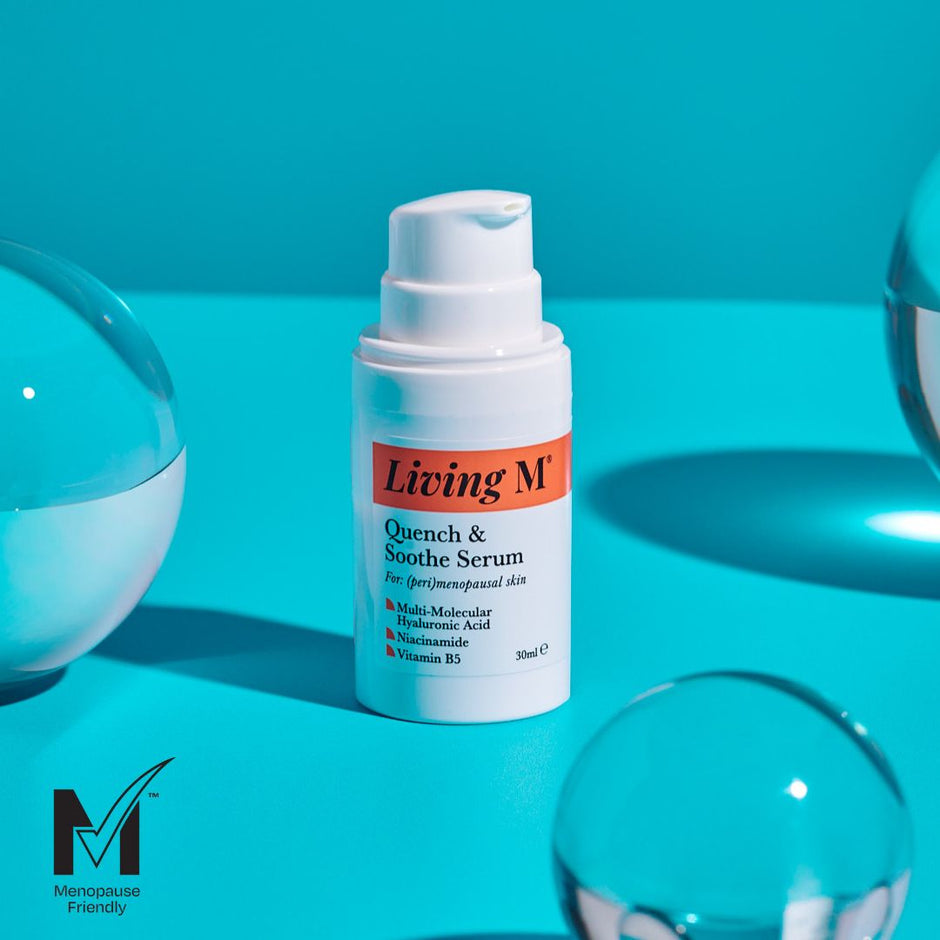We speak to the experts about how to care for your eye concerns during menopause
Eye issues, like dry eyes or Blepharitis are a prevalent and often underestimated concern of peri/menopause. That’s why we’ve spoken to the professionals at Peep Club, to give you the detail on how to help tackle your irritated eye concerns.
The link between hormones and dry eyes
The hormonal fluctuations that define peri/menopause play a crucial role in causing dry eyes. Oestrogen, which influences the health of various bodily systems, including the eyes, undergoes substantial fluctuations during this time. It helps maintain the stability of tear film, a protective layer that covers the eye's surface, promotes tear production and prevents rapid evaporation, ensuring that eyes stay moist and comfortable. As oestrogen levels decline, the tear film becomes less stable, leading to insufficient moisture and the onset of dry eyes.
Why dry eyes are no joke
Common symptoms of dry eyes include a feeling of grittiness in the eyes, burning sensation or stinging, redness or bloodshot eyes, blurry vision and light sensitivity and excess tearing.
Living M co-founder, Siobhan McCarthy experienced severe Blepharitis and explains “I started to experience dry, itchy, irritated eyes in my early 40’s and thought it was eczema, as I have suffered with this since childhood. It was very painful, and I would avoid socialising when I had a severe flare up because I could never find an effective solution. After many, many appointments and treatments a doctor finally diagnosed me with blepharitis and dry eyes. It was a relief but I was also frustrated that it had taken so long to find out what was the cause as I wasn’t aware that these were symptoms of perimenopause.”
Optometrist and co-founder of Peep Club, the ultimate eye care experts, Nicola Mari Alexander explains, “Blepharitis, is the inflammation of your eyelids. The most obvious symptoms are red, swollen, itchy eyelids. Patient's often also report sore eyelids, a gritty feeling in their eyes, flakes or crusting around their eyelashes and eyelids sticking together - especially in the morning. If left untreated, Blepharitis can also cause dry eyes, cysts on your eyelid (such as styes), conjunctivitis or 'Pink Eye' - this is one of the reasons we encourage good eyelid hygiene daily!”
Nicola continues, “The close proximity of your eyelids to your eye surface means that Blepharitis can actually cause dry eyes. Dry eyes can also cause Blepharitis! This is why the two are very closely linked.”
Treating Blepharitis or other dry eye symptoms
“The good news is that Blepharitis is easy to treat! An eyelid/ lash cleanser used once or twice a day - especially to clean off any eye make-up, pollution, dirt and bacteria is the recommended at-home blepharitis treatment”, says Nicola.
Nicola’s top product picks from Peep Club
Soothing Coconut Eye Balm: If you have only got mild symptoms this is the one for you! Coconut is a natural anti-bacterial, Chamomile is a natural anti-inflammatory. Together they're the dream team for protecting your eyelids and eyelashes on a daily basis. Coconut doubles as a wonderful ingredient to protect and strengthen your lashes. This very calming, gentle formula also has Cureberry in it to restore and protect the delicate skin around your eyes.
Cleansing Lash Foam: If you have moderate to severe symptoms then this is a better option! Tea Tree is the main ingredient in this powerful foam - a hard hitting anti-bacterial to ensure squeaky clean lids and lashes. Liquorice Root is also added to this formula - a known anti-inflammatory that has been clinically proven to help tackle the symptoms of more severe Blepharitis.
Other treatments for dry eyes in menopause
Spray it, don’t drop it
Nicola recommends using a specially formulated eye spray, “There are many benefits of the spray application rather than drops including; 1) A preservative-free formula which is much more gentle to eyes – meaning that you can use the spray throughout the day to keep your eyes refreshed, 2) Our spray is equally good for your delicate eye skin – in fact, Sea Buckthorn and Sodium Hyaluronate (the two active ingredients of our Instant Relief Eye Spray) are found in many moisturising skin care and eye care products specifically because of their proven ability to plump and hydrate the skin, 3) They are super convenient and can be used throughout the day especially by those who find traditional eye drops intimidating or difficult to use”.
Hydrate your body too
Staying well hydrated and drinking sufficient water throughout the day can have a positive impact on tear production. When your body is well hydrated it has the resources to produce an adequate volume of tears, to keep your eyes moist and comfortable. Dehydration on the other hand, can lead to decreased tear production, resulting in dry, irritated and uncomfortable eyes.
Humidifiers are helpful
“There is a growing body of evidence that humidifiers can help to relieve dry eyes in certain types of dry eye sufferers – specifically, those whose dry eyes are affected by their environment.
The way that the humidifier can help those with dry eyes is by creating a more hydrated environment around the eyes so that while they are open the air, they are exposed to is fuller of moisture. Most houses and work environments do not achieve the optimum level of humidity (40-60%) for eyes to be at their most comfortable. The humidifier can help reach this level to prevent dry eyes becoming worse during the day or night.
One important thing to note is that it is unlikely that a humidifier alone will resolve dry eyes, but it can prevent them from becoming worse over the course of the day (for screen users) or over the course of the night (for those who don’t fully close their eyes at night). Think of the humidifier as an extra tool in your dry eye tool kit to keep your eyes as stable and well managed as possible and help prevent any particularly bad flare ups.” explains Nicola.
Your eyes are what you eat
When it comes to nourishing your body, you might not immediately think if your eye health however what you eat can actually play a role in supporting your vision too. Including foods rich in omega-3 fatty acids, such as fish and flaxseeds, in your diet can contribute to better eye health. This is because omega-3 fatty acids can support the integrity of the eye’s tear film, helping to prevent dry eyes; they have anti-inflammatory benefits (to the eyes), can support clearer vision and help maintain the health of blood vessel that supply the eyes.
Wearing the right glasses
Wearing sunglasses with UV protection and avoiding environments with excessive wind or dry air can shield your eyes from external irritants. When it comes to choosing the right specs, Nicola recommends “Look for a sticker (usually on one of the lenses) that says UV400 – this is the lens equivalent to SPF 50 and will mean the glasses are offering your eyes the best possible protection from UVA, UVB and UVC wavelengths of sunlight. And, if you’re going to be wearing the sunglasses around water, roads, snow (swimming/ fishing, cycling or skiing) or any reflective surfaces – opt for Polarised lenses: this is an extra coating on the lens that is specifically designed to block reflected rays – protecting your eyes and making it more comfortable to see.”
Don’t suffer in silence
If dry eyes become persistent and severe, consulting an eye care specialist is crucial. They can recommend prescription products, medications, or other suitable treatments.
In some cases, hormone replacement therapy (HRT) may be considered to manage various symptoms of perimenopause and menopause, including dry eyes. However, this approach should always be discussed with a healthcare provider due to potential risks and benefits.
For more information about Peep Club visit https://www.peepclub.co.uk/



